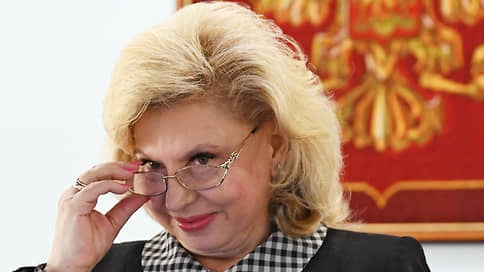Those who have left are taken out of wide trousers – Newspaper Kommersant No. 67 (7512) dated 04/18/2023
[ad_1]

Citizens who have left Russia for long periods may be allowed to receive both foreign and general passports at consular offices. Russian Ombudsman Tatyana Moskalkova, who earlier put forward the initiative, said that the Foreign Ministry and the Ministry of Internal Affairs of the Russian Federation agreed with this proposal. However, in the diplomatic department, Kommersant was told that so far they were only “working through” such an idea. The possibility of obtaining internal passports abroad will “resonate” with compatriots living there who continue to do business in Russia, the lawyer believes. At the same time, he recalls that in this case they will no longer have the “opportunity to avoid the obligation” to obtain a passport, referring to the physical absence in the country.
The fact that the Ministry of Foreign Affairs and the Ministry of Internal Affairs agree with her proposal to arrange the issuance of general civil (internal) passports to citizens who are abroad, Ms. Moskalkova announced in the State Duma at an event dedicated to “topical problems of the Russian world.” “A large number of Russian citizens continue to live abroad,” said the human rights ombudsman in the Russian Federation, without specifying, however, their number. “But they cannot get a passport of a Russian citizen abroad, they must come to the territory of Russia,” added Tatyana Moskalkova. She stressed that the Ministry of Foreign Affairs and the Ministry of Internal Affairs of the Russian Federation agree with her proposal, “but nevertheless, the issue has not been resolved today.” Note that in December 2022, Alfa-Bank analysts reported (with reference to statistics on the labor market and consumption) that about 1.2 million people left Russia in the third quarter of last year.
For the first time, Ms. Moskalkova came up with the idea of issuing general passports to Russian citizens in foreign consular offices in November 2022. According to her, the ombudsman applied to the government of the Russian Federation with a request to give the consulates the appropriate powers. It should be noted that the current speech of the Commissioner for Human Rights in the Russian Federation takes place against the backdrop of a discussion about a new version of the law “On Citizenship”. 5 April State Duma Committee on CIS Affairs recommended Parliament to adopt the relevant bill in the second reading. The amendments approved by the committee include both new grounds for terminating acquired citizenship (for example, discrediting the army, incitement to extremism and encroachment on the life of a statesman), and a rule that abolishes the need for the consent of a foreign parent to obtain Russian citizenship by a child born abroad. This idea was promoted by United Russia deputies Konstantin Zatulin and Tatyana Butskaya, as well as Ms. Moskalkova herself. At the same time, the ombudsman’s office found it difficult to clarify whether the package of proposals submitted to the State Duma Committee on CIS Affairs contained an amendment on the issuance of internal passports abroad, as well as promptly comment on what actions should be followed after the agreement of the Foreign Ministry and the Ministry of Internal Affairs with the initiative of Tatyana Moskalkova.
The Russian Foreign Ministry confirmed to Kommersant that they had received an appeal from the Ombudsman to empower diplomatic missions and consular offices of the Russian Federation with the authority to issue internal passports to “Russians permanently residing abroad.”
At the same time, the department clarified that so far they are only working on the issue “in an interdepartmental format with interested federal executive bodies.”
Tomashevskaya & Partners lawyer Alena Shnypko recalls that under the law, a general passport is issued by the Ministry of Internal Affairs on the territory of the Russian Federation, and the functions of consular institutions include only issuing passports. To change the procedure, it will be necessary to amend the Russian government decree No. 828 (approves the provision on a citizen’s passport) and federal law No. 154 on the consular charter of the Russian Federation, Ms. Shnypko says. Both a foreign and an internal passport are documents proving identity and confirming the citizenship of the Russian Federation, explains the lawyer, who considers it incorrect to say that one of the documents gives more rights from a legal point of view. “But in practice, there are cases when it is difficult to exercise your rights without an internal passport. For example, if a child lives abroad and is home schooled, does not receive an internal passport upon reaching the age of 14, and then flies to Russia to take final exams at school, then he will not be able to sign up for the exam until he receives a passport. – Mrs. Shnypko argues. The possibility of obtaining internal passports abroad “will resonate” with those permanently residing abroad who continue to conduct business in Russia, the lawyer believes, but recalls that the procedure for issuing these documents is the responsibility of citizens and “it will no longer be possible to avoid it with reference to physical absence in country.”
[ad_2]
Source link








